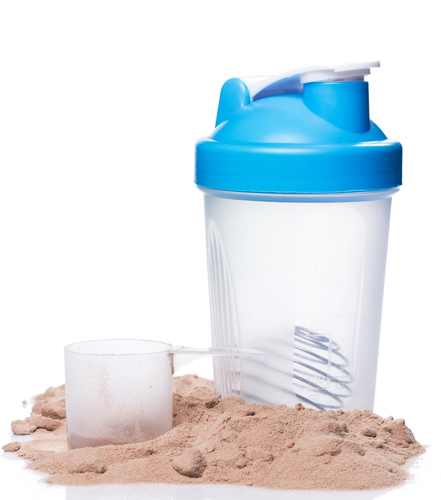Short answer
Some protein powder can be bad for you. The supplement is overly processed and can contain harmful ingredients. If at all possible, you should strive to reach your daily protein goals by following a healthy diet.
Recommended Alternative
Long answer
You need protein. Protein is essential to growth and without it, your body can’t repair existing cells or generate new ones.
So protein powder supplements must be good for you, right? Not necessarily... because protein powder is just that: a supplement. If you eat lean meat, fish, low-fat dairy, nuts and other protein-rich foods regularly, you won’t have any need for protein powder.
How much protein do you need? Everyone is different, but generally, you should strive for around one gram of protein per each pound of your body weight per day. If you are a vegetarian or an athlete, it might be difficult to reach your daily protein requirements on diet alone. In these cases, protein powder might be appropriate—but there are three things you should avoid.
When selecting a protein powder, stay away from anything labeled “denatured” or “hydrolyzed.” It won’t do you any good: proteins are traditionally three-dimensional in shape. Like a key fitting a lock, that’s how the 3-D protein triggers certain receptors in your body to build cells. When protein is denatured or hydrolyzed, it’s flattened and cannot work effectively.
Next, steer clear of any protein powder that contains sugar. It’s bad for you because regular sugar consumption trains your hormones to store fat instead of burning it off. And while protein shakes are supposed to help you feel full longer, sugar actually makes you feel hungry faster. Stored fat and the constant urge to eat lead to obesity, which can turn into Type II diabetes and other serious health problems.
In addition to avoiding sugar, you should also stay away from protein powders that use artificial sweeteners. Even though they have no calories, artificial sweeteners like aspartame and sucralose can slow your metabolism and also increase your risk of cancer. A recent study featured in Yale’s Journal of Biology and Medicine correlated the growing number of obese Americans with increased use of artificial sweeteners. Even scarier, a 2012 analysis of the Nurses’ Health Study (NHS) revealed that aspartame was a carcinogenic agent.
Beyond ingredients, it’s also important to pay attention to the amount of protein powder you’re consuming. Don’t overdo it: excessive protein consumption of any kind can create a buildup of ketones bodies, which are soluble molecules produced by the liver in times of duress. Passing the ketones requires a great deal of water, which can lead to serious dehydration. And in the long run, prolonged over-consumption of protein puts serious strain on the kidneys.
Possible short-term side effects
- dehydration
- constipation
- diarrhea
- upset stomach
- cramps
- decreased appetite
Possible long-term side effects
- kidney damage
- loss in bone density
- cancer (depending on the additives used)
- ketone buildup
Ingredients to be aware of
- preservatives
- allergens
- soy
- artificial sweeteners
- artificial colors
- artificial flavors
- sugar

Benefits
- weight gain
- increases muscle mass
- suppresses appetite
- convenient
Healthier alternatives
- natural protein powders
- fish
- beans
- lean meats
- nuts
Our Wellness Pick (what is this?)
Gold Standard Whey Protein
- Builds muscle strength
- 100% Whey Protein
- Rich chocolate flavor
- 5-pound quantity
- Supports recovery
 Approved by
Approved by 















